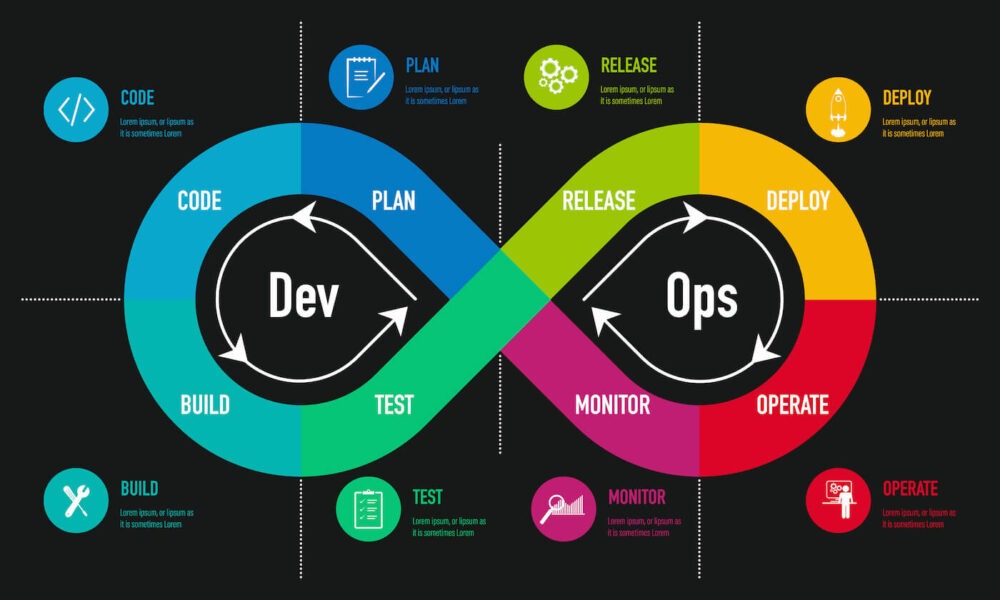DevOps has significantly altered the way businesses used to operate, revolutionizing the IT industry in particular. Breaking down barriers between the development and operations teams has undoubtedly increased productivity while also enhancing the customer’s experience. Opening new ways of ease and growth for the companies.
But somehow, recruiting the best DevOps talent has posed the challenge of building an effective DevOps department within the organization with an equipped skill force to meet the level of productivity.
Due to this unusual challenge, all businesses—startups, growing companies, and Fortune 500 firms—must reevaluate their hiring strategies for this specific department. When there is intense competition, finding the most qualified and relevant talent pool is challenging.
To succeed, one must have a thorough understanding of the DevOps concept, the roles that are crucial to the department’s success, and—most importantly—the best practices for hiring the most qualified applicants.
Let’s start by thoroughly going through the concept and benefits of DevOps.
Understanding the Concept and Benefits of DevOps
DevOps, as the name implies, is the process of bridging the gap between development and the operations department of the company.
This decrease in the gap between the operations team and developers increases the capability of the company to deliver faster and better experiences for the user, helping the company stand out from its competition.
To put it more simply, using this phenomenon, the traditional development process is catalyzed by a combination of various tools and practices, making the entire process of development and deployment simpler and more continuous.

This model has various perks and benefits, which complement this system and meet the needs of the time.
Speed:
In a rapidly evolving industry like IT, speed can be considered the most important factor in bringing exclusivity to your innovation. This becomes the most crucial element in driving efficient results and the growth of the business.
Rapid Delivery:
When a product is released rapidly and hits the market at a faster pace, customer’s needs and concerns can also be addressed more efficiently, giving the business a competitive advantage.
Reliability:
Continuous integration and continuous delivery are important building blocks of DevOps. Due to this enhanced communication, the quality of the applications also increases, and the final product released is more synchronized.
Collaboration:
Collaboration increases when both teams work closely on a shared task with the assigned roles. This assured collaboration decreases the chances of mistakes, improving the quality of the application.
Explaining the DevOps Roles
DevOps cannot be perceived as one-size-fits-all and is a customized solution that requires a dedicated workforce to do the tasks. So, what is the DevOps role? Why are these roles significant, and why can’t a DevOps engineer handle the whole job?
These are some questions that need to be addressed to bring in clarification and help you out while you are doing DevOps talent acquisition.
The first thing you should understand is that a DevOps engineer is not everything. Although this job requires a lot of skill, to do the job in the best possible way, each role requires a dedicated person. Now that this is clear, let us learn more about the roles of this specific system.
There are various roles assigned to DevOps engineers if we analyze at ground level, assigned according to the development needs, but here we will be discussing the major roles involved in making this integration work and interacting with the various stakeholders to meet all the requirements in a flow.
Developer/ Tester:
A developer, or technical expert, can be considered a root-level role assigned to develop and test the software and come up with a plan to finish the development task by the deadlines specified. The developer must have a strong command of technical tools. Soft skills are frequently not necessary for this position, but having a firm grasp on the technical skills is crucial.
Release Manager:
A person responsible for the timely release of the software and assuring the updates made to the deliverable are completely integrated with the basic concept. This role is completely focused on the coordination between development and deployment to eliminate the possibility of any mishap.
Automation Expert:
As mentioned earlier, DevOps is all about automation. This individual assures that all functions are automated and running smoothly. This role not only limits itself to ensuring current automation but also should look forward to possibilities for further automation.
Security Engineer:
A security engineer is in charge of making and implementing security measures for the application. Designing cyber security policies and maintaining the computing infrastructure along with the data fall under the responsibilities of the security engineer.
DevOps Evangelist:
This role is considered the leadership role in DevOps, developing new strategies and implementing these strategies. The evangelist also ensures the improvement of the previous system. This role also requires strong soft skills along with technical skills.
How Traditional Recruitment Methods are Not Effective for DevOps Hiring
Traditional hiring methods cannot be seen as a recruitment solution in the case of DevOps talent acquisition because finding a combination of technical and soft skills is difficult in the job market. Those who are equipped with both skills are already happily employed with attractive perks and salaries.
Traditional methods include opening positions and then finding a candidate from job portals, which will show a generalized result, and in-house HR may not be able to access these candidates due to its surface knowledge of DevOps.
Explaining the job description without having deep knowledge of the field also confuses applicants, resulting in wasting the time and resources of the company.
Hiring from within the organization would also be an option under the conventional recruitment system, but this would not be a wise choice because internal candidates would not have the expertise needed, especially when forming a new team.
These underlined challenges can be faced while opting for traditional hiring methods for this untraditional technology, but you can also ask recruitment and executive search firms like RFS HR to get professional help from their specialized experts in DevOps talent acquisition.
How to Attract the Best Talent for DevOps
Attracting the best talent for DevOps can be seen as a challenge because of the scarcity of talent in this specific market and the fierce competition. Companies are willing to extensively pay for acquiring these highly skilled professionals, offering attractive salary packages and a range of enticing benefits.
In this scenario, if you are trying to attract the best talent pool, it can only be possible if you provide value to the employee’s work life along with providing competitive financial benefits.
To achieve this, your company can also focus on creating a positive work culture that promotes collaboration and innovation, as well as providing opportunities for career growth and flexibility.
Along with that, you can also invest in training and development programs to upskill existing employees and create a pipeline of talent for future roles.
Taking professional assistance from DevOps recruitment and executive search specialist companies like RFS HR can also be a resource-saving solution in terms of both time and finances.




